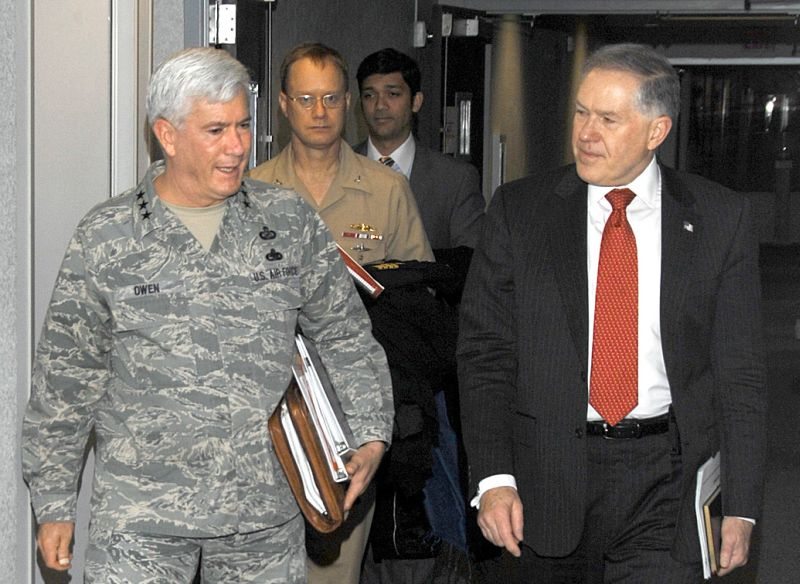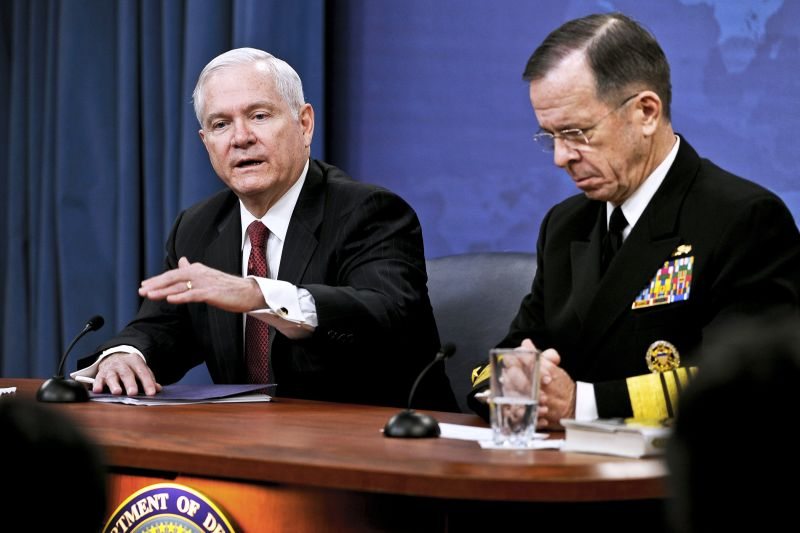“(The Defense Department) doesn’t have enough money unless we change how we do business,” said Frank Kendall, the principal deputy under secretary of defense for Acquisition, Technology and Logistics.
Mr. Kendall addressed a packed auditorium at the Air Force Institute of Technology here Jan. 4 during the third of 12 planned visits to major defense acquisition centers. His objective was to open a frank dialogue throughout DOD on the initiatives proposed by Dr. Ashton Carter, the under secretary of defense for Acquisition, Technology and Logistics, to deal with budgets that loom on the horizon.
“We’ve got a major problem,” Mr. Kendall said, who estimated there will be money enough to fund only one major acquisition program per service during the next 15 to 20 years.
A situation of that magnitude requires one to go where the money is and, as Mr. Kendall pointed out, “acquisition is where the money is.”
At the heart, Mr. Kendall explained, a culture shift is needed.
“Today, you get money for a program and execute it,” he said. “Success is measured by getting money out the door. We have to put incentives in place to reverse this impulse. Program managers that don’t spend money, but still get the job done should be rewarded for that.”
One incentive already in place allows services to keep any savings within the service. The idea here, he explained, is to prompt services to move money from unproductive programs or processes and redirect that money to programs that put real results in the hands of the warfighter.
Recognizing that knowledge at the comprehension level is crucial to success, he and Dr. Carter have taken to the road to fully explain their intent and to gather feedback from the field in person.
“This is the beginning of a continuous improvement process,” Mr. Kendall said. “Our intent is not to create dogma you must blindly follow. When you see something that doesn’t make sense, we want you to elevate that concern up the chain.”
Mr. Kendall listed and spoke at length to each of five initiatives Dr. Carter is advocating:
- Target affordability and control cost growth
- Incentivize productivity and innovation in industry
- Promote real competition
- Improve tradecraft in acquisition of services
- Reduce non-productive processes and bureaucracy
Going over each item individually, he cited several key points, such as incorporating affordability early in the requirements definition process. He identified a handful of programs that had substantial DOD investment only to be canceled because they weren’t affordable.
“We’ve got to make the decision on if we can afford a program much earlier in the process,” he said.
Mr. Kendall also dispelled the notion that DOD is “anti-profit.”
“There is no war on profits,” he said. “We care about the price we pay and about getting value. Ultimately, we want to reward productivity.”
Achieving the intended results will require government managers to improve certain skills, he said.
The ability to conduct a strong business case analysis, which he defined as “really a return on investment analysis,” the ability to conduct face-to-face negotiations with industry and dealing with cost overruns are all skills needing improvement within the government ranks.
In closing, Mr. Kendall reiterated the need for involvement and feedback at all managerial levels.
“We aren’t trying to create dogma,” he said. “We want you to think. I’m going to leave here and you’re going to have to do this. We’re counting on you.”











